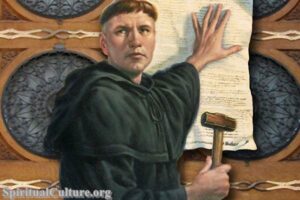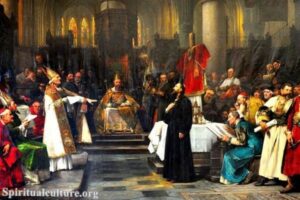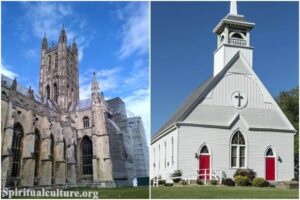Reformation history is an intriguing and profound subject that has shaped the world as we know it today. The Reformation was a pivotal period in human history, marked by religious, political, and social changes that fundamentally transformed the fabric of European society. The Reformation was more than just a religious upheaval; it was a seismic shift that shattered the unity of the medieval Church, leading to the birth of Protestantism and a new era in Western civilization.
The Birth of Protestantism
The Protestant Reformation, a critical chapter in Reformation history, was a religious movement in the 16th century that resulted in the creation of Protestantism. The movement began in 1517 when Martin Luther, a German monk and academic, nailed his Ninety-Five Theses to the door of the Castle Church in Wittenberg. These theses were a list of propositions challenging the practices of the Roman Catholic Church, particularly the selling of indulgences.
Luther’s actions were a direct affront to the Church’s authority, and his teachings quickly spread, leading to a schism in the Church. His followers, known as Lutherans, rejected the authority of the Pope and the Catholic Church, asserting that the Bible was the only source of divinely revealed knowledge. This belief became a fundamental tenet of Protestantism, shaping its theology and practice.
The Expansion of Protestantism
Protestantism didn’t stop with Lutheranism. As reformation history unfolded, several other reform movements emerged, each with its unique theological doctrines and practices. John Calvin, a French theologian and pastor, established Calvinism in Geneva. Calvinism emphasized God’s sovereignty and the doctrine of predestination.
Meanwhile, Huldrych Zwingli initiated the Swiss Reformation in Switzerland, which eventually led to the formation of the Reformed Churches. In England, the Reformation took a different turn. King Henry VIII established the Church of England or Anglicanism primarily due to political reasons rather than theological disputes.
Protestantism’s Impact on Society
The impact of Protestantism on society is a crucial aspect of Reformation history. The Reformation led to the decentralization of religious authority, breaking the monopoly of the Catholic Church. It gave rise to religious pluralism, fostering a spirit of inquiry and individualism.
The Reformation also had significant impacts on education. Protestants emphasized that everyone should read the Bible, leading to an increased focus on literacy and education. This shift contributed to the rise of the modern educational system.
On a political level, the Reformation challenged the existing power structures. It encouraged individuals to question authority, leading to the development of modern democratic and republican ideologies.
Conclusion
Reformation history is a fascinating study of religious, social, and political change. The birth and spread of Protestantism during the Reformation permanently altered the landscape of Europe and the world. The Reformation’s enduring impact is evident in the religious diversity, democratic institutions, and education systems that characterize Western society today.
As we delve into Reformation history, we gain a deeper understanding of how these historical events have shaped and transformed our world. They serve as a reminder of the power of ideas and the capacity of individuals to challenge the status quo and effect change.



